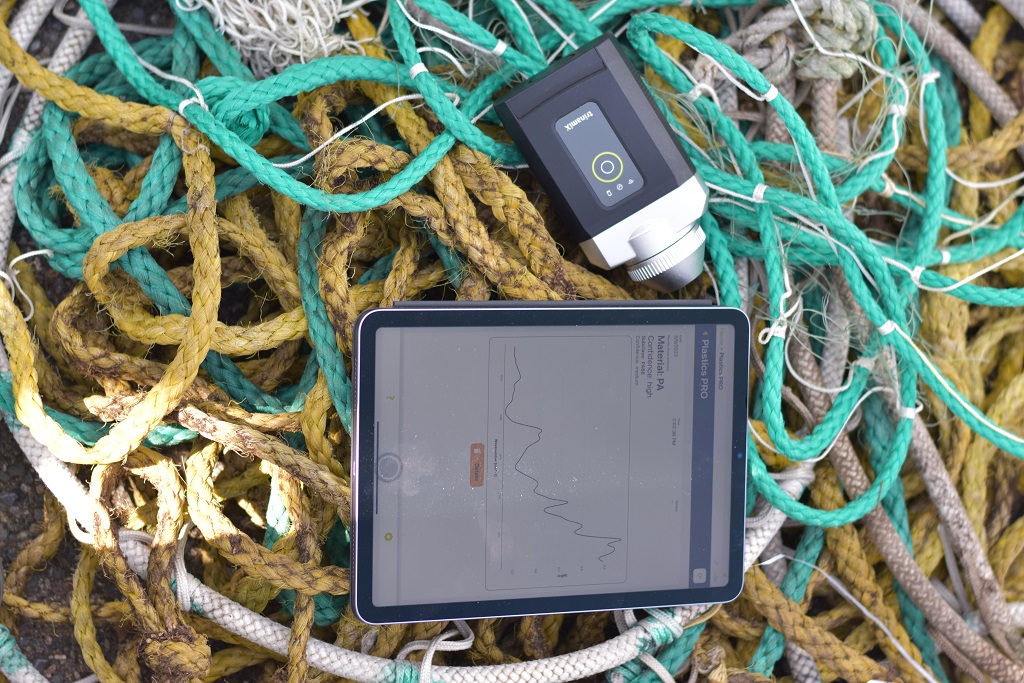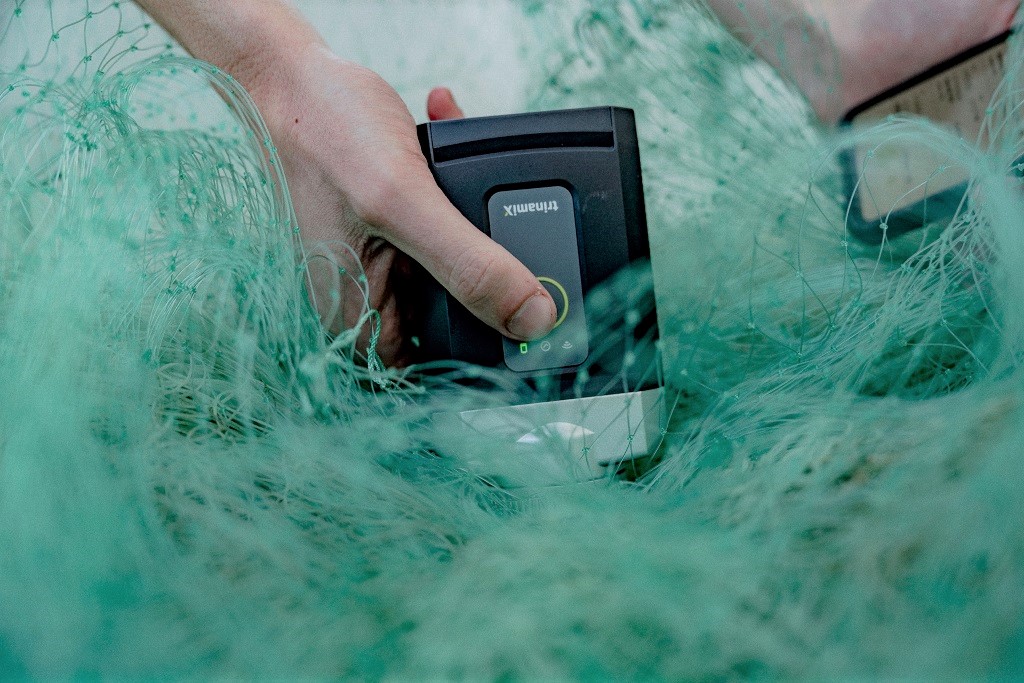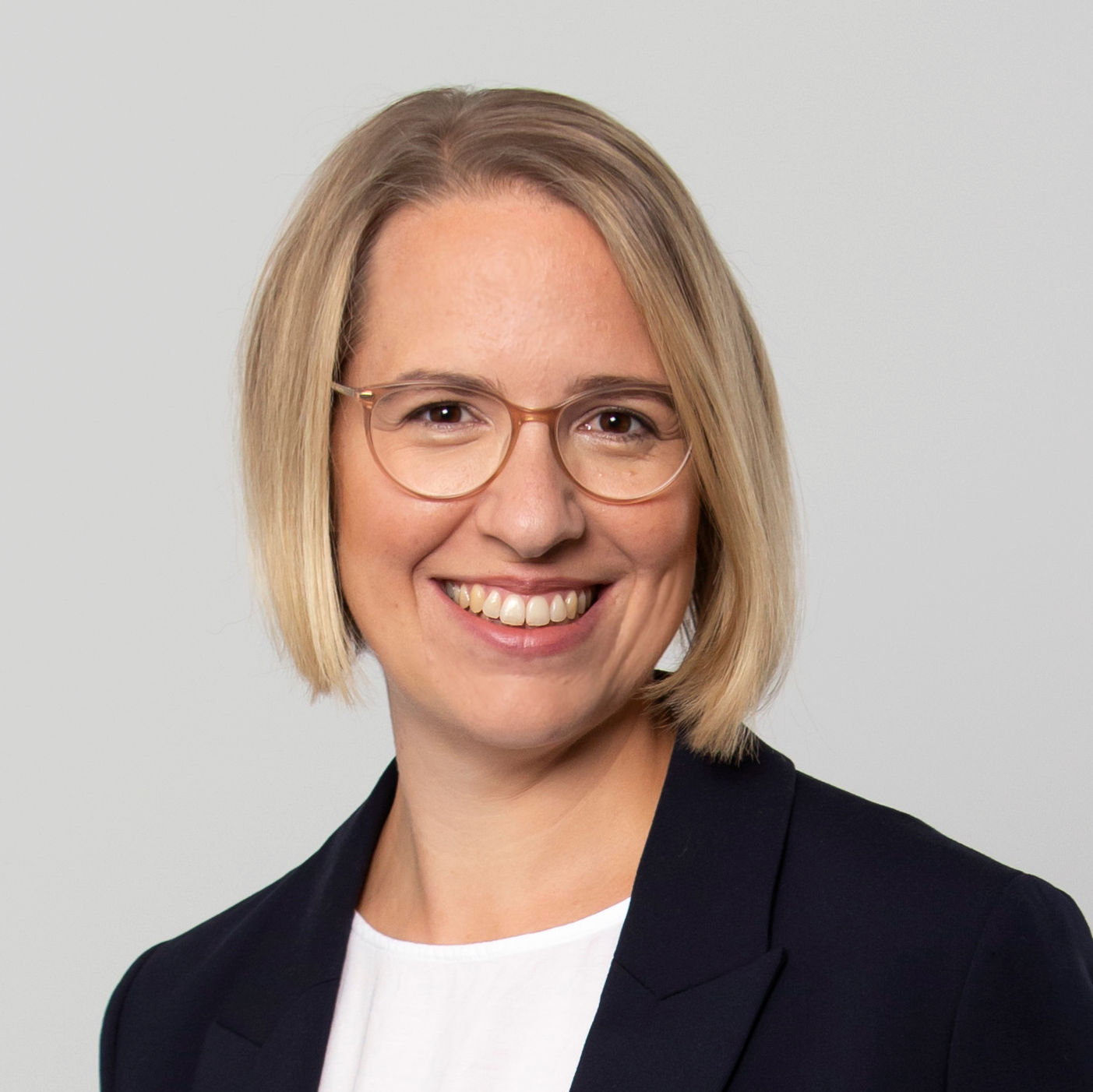Breathing new life into old fishing gear: trinamiX and Net Your Problem host sustainability events around harbors in the greater Seattle area
trinamiX GmbH, a leading provider of mobile spectroscopy solutions, BASF, a globally leading company in the chemical industry, Net Your Problem, a company that works with fishing communities, recyclers and sustainable brands to recycle end‐of‐life fishing gear, and Grundéns, a leading manufacturer of fishing apparel and footwear, teamed up to raise awareness about the value of recycling used materials into new products. The four companies brought together players from the local value chain to host unique events demonstrating how the circularity of plastics can play out at harbors in the Puget Sound area around Seattle from May 9th to May 10th.
At the heart of the event, fishermen are enabled to have their old fishing and rain gear prepared for later recycling at three ports: Bellingham, Seattle, and Port Townsend. This way, end‐of‐life items ranging from clothing to buoys are prevented from entering the marine or terrestrial environments and landfill streams. A group of volunteers from different companies will collect, identify, and sort the incoming materials right on the spot. Through this process, they’ll be applying an innovative tech solution by trinamiX to identify the plastic types of the materials in a matter of seconds. Only then materials can be sorted into pure material streams as a crucial step of the later recycling process.
Net Your Problem, BASF, trinamiX, and Grundéns aim to ensure that sustainability is not only at the forefront of discussion but also throughout the project itself. Therefore, they are focusing on reducing the carbon emissions of the event by utilizing a local supply chain. For example, many of the volunteers who help collect and sort the materials are local, including students from Western Washington University. After collection, the materials are compressed onsite with balers provided by Bramidan Group and Blankenship Equipment, both leading providers of compacting and baling machines. This reduces the amount of space materials take up in trucks, allowing the team to collect additional materials and transport them more efficiently. The plastics are then processed in nearby recycling facilities to further reduce transport emissions.
The multiple material streams generated from the collected fishing gear and apparel are processed by different companies. Grundéns will use processed nets as raw materials to create new products such as jackets, boots, and pants. More information is available here. Another example is BASF, whose Performance Materials business is looking for ways to close the plastics loop by using items like fishing nets in recycled material applications such as furniture and automotive.
“Net Your Problem is so excited to be working with trinamiX and BASF to keep end‐of‐life fishing gear out of the landfill. Sorting is at the crux of a functioning recycling system, and the trinamiX solution allows us to do this on the spot, increasing the purity of the products we provide to recyclers and helping educate fishermen about what is recyclable,” explains Nicole Baker, Founder of Net Your Problem. “BASF’s commitment to the R&D process for incorporating new streams of recycled materials like fishing gear into their supply chain has been essential. We hope that other brands and chemical suppliers take notice and become equally involved in improving waste management for challenging material streams”.
“For trinamiX and BASF, the event shows that joint commitment along the value chain and innovative approaches turn recycling challenges into business opportunities,” explains Brian Schmatz, Business Development Manager at trinamiX GmbH. “We’re proud that by putting solutions like ours into the hands of those who can make a difference, we help increase the value of plastic waste.”
The public and media are invited to attend the events and experience first‐hand how joint efforts by industry partners paired with innovative technology can contribute to a circular economy.








Downloads
Media contact
